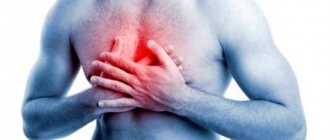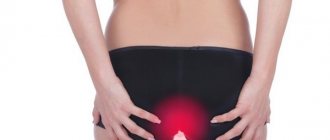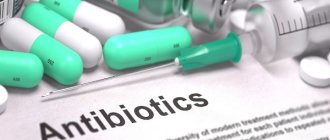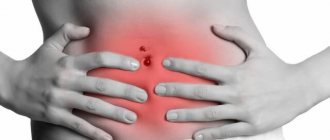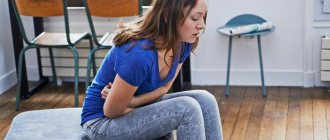Diarrhea is a dysfunction of the intestines, which is manifested by cramping abdominal pain and loose stools. Diarrhea after chemotherapy occurs primarily due to the toxic effects of the chemotherapy drug on the epithelial cells of the large and small intestines. Most modern chemotherapy drugs cause intestinal dysfunction. The patient cannot always cope with this situation on his own. Oncologists at the Yusupov Hospital are involved in replacing lost fluid and electrolytes. The hospital uses innovative treatment regimens in accordance with international standards.
Why does diarrhea develop after chemotherapy?
There are two known causes of diarrhea during chemotherapy: the toxic effects of cytostatics and leukopenia. When using cytostatic drugs, diarrhea develops in 10-70% of cases. Drugs used in chemotherapy destroy uncontrollably dividing tumor cells, but indirectly damage healthy cells, primarily red bone marrow and the epithelium of the digestive tract. Ulcers form in the intestines, as a result of which the absorption of nutrients is disrupted and the movement of intestinal contents accelerates.
In the presence of leukopenia, infectious complications are often associated, including intestinal infections. They are manifested by vomiting, diarrhea and increased body temperature.
Changes in memory during chemotherapy
About one in five patients who receive chemotherapy experience problems with memory and thinking. They can be caused by two reasons:
- side effects of chemotherapy drugs;
- fatigue, anxiety, stress due to illness and treatment.
The doctor must understand the causes and prescribe treatment. Sometimes memory impairment is not severe and does not cause any special problems, in other cases it interferes with everyday activities.
Useful tips to help with memory loss:
- Plan ahead. Write them down in a diary or on colored sticky notes placed in a visible place.
- The most difficult tasks should be completed when you feel good and can concentrate as much as possible.
- Get more rest.
- , special boxes, and marks in a calendar or diary will help you take your medications on time and correctly
- Don't be shy to ask family and friends for help if you can't handle things on your own.
- Ask your family to remind you about taking medications and procedures.
- If you feel that your condition has worsened, your consciousness is confused, you need to call the doctor and ask that someone close to you be with you at all times.
What should you ask your doctor?
- Why did my memory deteriorate?
- What medications can improve it?
- What recommendations should you follow?
- How long will these violations last?
- In what cases should you urgently consult a doctor?
How to treat diarrhea after chemotherapy?
When diarrhea develops after chemotherapy, how is it treated? Treatment of diarrhea after chemotherapy should be comprehensive. Combination therapy includes:
- probitotics (Probifor or Enterol, Bifidum bacterin Forte) – restore normal intestinal microflora and displace pathogenic microorganisms from its lumen;
- loperamide - slows down intestinal motility and reduces the secretion of fluid into its lumen;
- enterosorbents (Enterosgel or Smecta) remove toxins from the intestinal lumen (after chemotherapy, taking activated carbon is strictly contraindicated);
- pancreatic enzymes (Creon 25000) improve food digestion.
- solutions: Ringer's solution
Features of diet in the fight against disease
Diarrhea after chemotherapy occurs due to the fact that the digestive organs experience increased stress during this period. Food does not have time to be fully absorbed because there is a lack of enzyme production.
To stop diarrhea, you must first give up fatty foods, avoid consuming excessive amounts of spices, and avoid eating marinades and overly salty foods.
Raw vegetables contain a large amount of fiber, which stimulates the functionality of the intestines, so it is better to eat these foods in the form of salads. But you can’t eat cabbage, radishes and onions. Legumes should also be prohibited for diarrhea. It is necessary to exclude any types of baked goods, as they can cause fermentation.
Important! Drinking carbonated water during diarrhea during the post-chemotherapy period is prohibited. The drink will only irritate the intestinal walls more.
To minimize the load on the gastrointestinal tract, doctors advise following the principles of fractional nutrition. The patient should reduce the size of portions, but eat food more often. It is also necessary to drink as much pure water without gas as possible - at least 2 liters per day. Chew food thoroughly, this will also ease the work of the affected intestines.
Experts advise eating:
- Grated apple . It contains pectin, which is easily absorbed and protects the intestines from toxins. The fruit will soothe the intestinal mucosa and eliminate the symptoms of diarrhea.
- Bananas . They will be no less effective. The fruits contain many vitamins and starch. The product is an excellent source of potassium, it is easily digestible and helps to cope with diarrhea, as it helps strengthen the stool.
- Blueberry . During the season, you need to enrich your diet with these berries. They contain tanning elements. You can eat blueberries in their pure form, or you can drink them in the form of tea, pouring 2-3 tablespoons of the raw material into 150 g of boiling water.
- Carrots Will help with severe diarrhea. Root vegetables contain polysaccharides. The product helps bind and eliminate many toxins and is easily absorbed by the patient's body.
What to do if you have diarrhea after chemotherapy?
Patients often ask: “I have diarrhea after chemotherapy, what should I do?”
You can contact the Yusupov Hospital by phone or make an appointment using the appointment form. In real time, the center’s coordinating doctor will answer your questions.
Doctors at the Yusupov Hospital rely on the latest advances in the treatment of cancer. We provide symptomatic therapy aimed at restoring blood counts, improving the patient’s general condition, relieving complications after chemotherapy, and preventing complications before and after chemotherapy.
Changes in skin and nails during chemotherapy
During chemotherapy courses you may experience: dryness, itching, redness, pain of the skin, increased sensitivity to sunlight. Hives may appear on the skin. Nails become brittle and brittle. All these symptoms should be reported to your doctor.
Skin care recommendations
- Take short showers and baths with warm water. Do not use hot water.
- When washing, do not rub the skin with a washcloth; gently stroke it.
- When using lotions and creams, ask your doctor or nurse how to use them correctly.
- The cream should be soft and gentle on the skin. Never use products that contain perfume or alcohol.
- Sometimes in the area of skin folds (in the armpits, under the mammary glands, in the popliteal hollows) it is worth applying corn starch. This will help prevent irritation and itching.
- If shaving causes discomfort or irritation, then you should shave less often, or not shave at all.
- Protect your skin from sun rays. When leaving the house, wear long sleeves and long pants, use sunscreen and chapstick.
- Do not visit the solarium.
Nail care tips
- Keep your nails short.
- When washing dishes and cleaning, wear rubber gloves.
What should you ask your doctor?
- How to properly care for your skin and nails? What products are best to use?
- What soaps, shampoos and lotions should you not use?
- Which sunscreen and chapstick should you buy?
- What products should you use to treat your nails?
- Is it possible to get a manicure?
- What to do if your skin itches a lot?
- How to care for your skin and nails after treatment? How long will it take to do this?
- In what cases should you consult a doctor?
Treatment
Cancer patients are specially registered, so the local doctor is responsible for their condition. If you feel unwell, it is important to contact him or her immediately or contact the ambulance service for advice.
The sooner the patient consults with a specialist and receives the necessary treatment, the sooner it will be possible to stop the appearance of diarrhea after chemotherapy. Otherwise, the condition will only get worse.
Treatment tactics will depend on the cause that caused the diarrhea. Only a specialist can establish it after carrying out diagnostic measures (blood and urine tests, coprogram, sigmoidoscopy, ultrasound of the abdominal organs, assessment of circulating blood volume).
For the first two degrees of severity of diarrhea, symptomatic treatment is used as first aid. These include the following drugs:
- Regidron. The powder is used to prepare a water-electrolyte solution, which is taken orally. This way you can prevent dehydration.
Contraindicated in hyperkalemia and decompensated renal failure.
- Hydrovit. The drug is an analogue of Regidron.
Contraindicated in severe renal impairment, malabsorption and hyperkalemia.
- No-shpa. An antispasmodic that will quickly eliminate abdominal pain.
Prohibited for children under 6 years of age, with severe decompensated diseases, as well as with hypersensitivity to the components of the drug (with caution for people with galactose intolerance).
- Loperamide (Diara, Imodium). The product restores tone and normalizes intestinal motility. You can take a maximum of 16 mg of the drug in one day. There are side effects - headache, nausea, vomiting.
- Probiotics – Probifor, Bifidumbacterin, Linex. These drugs contain biologically active components that normalize the intestinal microflora.
- Sorbents – Smecta, Enterosegl, Activated carbon. They bind and neutralize toxic substances, eliminating their negative effects.
- Enzymes – Creon, Pancreatin, Mezim-forte. Improve and normalize the digestion process.
After a course of chemotherapy, blood properties often deteriorate. To correct anemia, vitamins and iron supplements may be prescribed.
If you don’t have special powders on hand for preparing solutions for rehydration, you can use improvised means. To do this you will need the following components:
- 1 teaspoon each of salt and soda;
- 4 tablespoons sugar;
- 1 glass of natural non-acidic juice - apple or currant.
Natural juices contain many minerals that the body loses during diarrhea. This solution should be drunk in small portions, but often.
If the condition worsens to the third or fourth degree of severity, care is provided at the hospital stage in the inpatient department. Any self-medication in this case is strictly prohibited.
The doctor may prescribe the following measures:
Taking the drug Octeroid (a somatostatin derivative), which prevents the development of shock due to dehydration.- If diarrhea is infectious, intestinal antiseptics (Interix, Ersefuril) and antibacterial drugs of different groups are prescribed, depending on the severity of the condition and the characteristics of the pathogen.
- Probiotics after treatment with antibacterial drugs to normalize the functioning of the digestive tract.
When diarrhea continues for more than 2 days, body temperature rises, taking antidiarrheals at home will not help - you need to call an ambulance.
Traditional methods
In mild cases, diarrhea after chemotherapy can be stopped using traditional medicine. However, it is worth remembering that they will not be able to get rid of the cause of indigestion, but will only temporarily alleviate the symptoms.
For this purpose, medicinal herbs containing substances that have a tanning and astringent effect are used.
The most commonly used recipes are:
- Chicory decoction. To prepare it, you need to pour some dry twigs with hot water and keep it on the fire for another 5 minutes after boiling. The resulting mixture is infused until it cools, filtered and taken orally, 150 ml after each loose stool.
- A decoction based on serpentine and galangal. The plants are taken in equal quantities (3 tablespoons each), and then brewed in 0.5 liters of boiling water. The product is kept on low heat for another quarter of an hour, cooled and filtered. For diarrhea, drink a few sips four times a day.
- Uzvar or non-acidic compote from homemade fruits (apples, pears, currants) will effectively replenish the loss of minerals and fluids due to diarrhea.
- Rice water contains a large amount of starches, which effectively eliminate loose stools and normalize the activity of the gastrointestinal tract. Acts as a sorbent, also providing an anti-inflammatory and wound-healing effect. To prepare it, you need 2 tbsp. Cook the rice over low heat in 500 ml of water for about 40 minutes, stirring constantly. The product is allowed to cool, then filtered through 3-4 layers of gauze. Drink the resulting liquid a quarter glass every hour.
- Infusion of membranes of walnut shells. A small handful (150-200g) of partitions is poured with warm water and left for a day. The liquid is filtered through gauze and taken several spoons 3-4 times a day.
Although traditional medicine causes virtually no side effects, taking them may simply be useless for diarrhea after chemotherapy.
Diet
The difficulty in choosing the right diet is that chemotherapy usually needs to be continued even if it is complicated by diarrhea. Simply eliminating all dangerous foods will not work. List of foods that can be consumed for such diarrhea:
- rice in any form;
- oatmeal;
- dried bread, crackers;
- boiled (hard-boiled) eggs;
- vegetables without peel (but not sour);
- with caution: boiled chicken (up to 200 g per day), fish, buckwheat, boiled potatoes.
Nausea and vomiting during chemotherapy
Nausea and vomiting usually occur on days when chemotherapy is not administered. Medicines and some recommendations can help cope with these side effects:
- Limit spicy, sweet, salty, fried, fatty foods.
- If you can't stand the smell of raw food, ask your loved ones to cook it for you.
- Allow food to cool, do not eat it hot.
- Eat little, but more often. 5-6 small meals throughout the day are better than three “big” ones.
- If you find it difficult to drink a lot, take small sips of liquid throughout the day.
- During the administration of chemotherapy, you should try to relax and breathe deeply. Your loved ones can help and distract you.
- Find the best meal time for you. Some people feel fine if they eat a little before the procedure. Others are better off not eating anything.
- It is not recommended to eat or drink anything for at least an hour after the administration of chemotherapy drugs.
- Acupuncture helps some people cope with nausea.
Foods and drinks that will help improve your condition:
- Transparent broths: beef, chicken, vegetable.
- Grape or cranberry juice.
- Soda.
- Tea.
- Rehydron and other salt solutions for rehydration.
- Semolina.
- Skinless chicken, boiled or baked.
- Oatmeal.
- Cookies, crackers.
- Boiled potatoes.
- Pasta, noodles.
- Croutons (from white bread).
- White rice.
- Yogurts.
- Applesauce.
- Canned peaches and pears.
- Bananas.
- Sherbet.
- Fruit ice.
- Kissel.
What should you ask your doctor?
- What foods are recommended for me to eat?
- What foods should you limit?
- What foods should you completely avoid?
- How much fluid should you drink daily?
- Can physical therapy and acupuncture be helpful in my case? Where can you find specialists?
- Where can I find a nutritionist who can create an optimal diet?
- In what cases should you immediately consult a doctor?
Fatigue and weakness during chemotherapy
Increased fatigue can be associated with chemotherapy, anemia, stress and depression, insomnia, and chronic pain. Sometimes fatigue occurs only at certain times, other times it lasts all day. Be sure to tell your doctor if this makes it more difficult for you to cope with daily activities or if your fatigue does not go away even after resting.
Some tips will help improve your condition:
- Plan ahead. Do the most important ones first when you feel good.
- Ask your family for help if you can’t cope on your own.
- If you plan to continue working during treatment, take time off early and take fewer working hours .
- It is useful to keep a diary. Write down how you feel every day. This will help your doctor better monitor your condition and prescribe the best treatment.
- Eat well . Cook meals when you feel good and freeze for later.
- It is better to have 5-6 small meals during the day than 3-4 solid ones.
- Drink at least 8 glasses of liquid per day. You can take small sips throughout the day.
- Try to exercise for at least 15 minutes a day.
- Rest often . If you feel tired, don’t force yourself and continue working.
- Train yourself to nap during the day . It should last at least an hour.
- Always go to bed at the same time.
- Before going to bed, try to relax. For example, pleasant music helps.
- Your night's sleep should last at least 8 hours.
What should you ask your doctor?
- What medications will help cope with fatigue?
- What should I eat and drink?
- How much fluid should I drink every day?
- What physical exercises can make me feel better?
- How can I properly control my well-being? What information should you write down in your diary?
- In what cases should you urgently consult a doctor?
Manifestations
Depending on the body's response to chemotherapy, there are several degrees of dehydration. The table shows the features of the violation:
| Degree | Frequency, once/day | Manifestations |
| 1 | Until 3 | The general condition is not disturbed |
| The stool is liquid, without pathological impurities | ||
| 2 | 3—6 | Pain, rumbling and discomfort in the abdomen |
| Stool is loose, unformed, with mucus | ||
| 3 | 6—9 | The general condition is significantly impaired |
| Severe intestinal cramps that do not stop after going to the toilet | ||
| Signs of dehydration appear | ||
| Blood streaks are visible in the stool | ||
| 4 | More than 10 | Serious condition of the patient |
| Severe symptoms of fluid loss and acid-base imbalance | ||
| Bloody stools with a lot of mucus |
The feeling of thirst is a result of dehydration after chemotherapy.
Dehydration is manifested by dry skin and mucous membranes, dizziness, tachycardia, convulsions, and lack of urine. The general condition is disturbed, the patient feels thirsty, and vomiting is possible. If the fluid loss is insignificant and there are no obvious manifestations, the patient's condition will be normal. But at the cellular level, dehydration is expressed by a shift in acid-base balance and metabolic disorders.
Urinary dysfunction during chemotherapy
Chemotherapy may change the color and smell of your urine. Ask your doctor what changes may occur. If some symptoms appear, you must inform your doctor about them:
- Chills, fever over 38°C.
- The urine turned red, orange, dark yellow, green, cloudy, and there was blood in it.
- Urination has become difficult, during which there is a burning sensation and pain.
- The urine began to smell sharp.
Some recommendations will help you:
- Drink enough liquid - at least 8 glasses daily. This can be water, juices (it is better to dilute them with water), fruit drinks, milkshakes, compotes, soups.
- Drink more water, even if you urinate a lot and often, this will help normalize your body's functioning.
- Avoid any drinks that contain alcohol or caffeine.
What should you ask your doctor?
- How much fluid should I drink daily?
- What drinks are best to drink?
- What drinks are undesirable?
- What drinks should you not take?
- In what cases should you urgently consult a doctor?
Treatment options
There are quite a few ways to treat diarrhea. First of all, therapeutic measures are aimed at relieving symptoms, normalizing stool and restoring the body’s water balance.
Medication
Treatment of mild to moderate ailments is most often carried out using the drug Regidron. In combination with this drug, various antispasmodics and analgesics can be prescribed to relieve pain.
To relieve symptoms, you can take medications whose main active ingredient is Loperamide (Imodium) or Diosorb (Smecta). Diosorb-based products will not only reduce the manifestation of unpleasant symptoms, but also strengthen the intestinal walls, which is very important for patients undergoing chemotherapy.
Chemotherapy diarrhea can be treated with Loperamide
You can reduce the number of attacks with Neointestopan or Attapulgite. They attract and then remove toxins and various pathogens of intestinal infections from the body. In addition, they help restore normal intestinal microflora.
Sometimes, in combination with the listed drugs, drugs can be prescribed to restore the level of hemoglobin in the blood, since this indicator may fall due to indigestion. Such agents include, for example, Erythropoietin, as well as other options with a high iron content.
Glucocorticoids may be prescribed to support the body and speed up the recovery process.
If the patient has severe diarrhea, it is treated in a hospital. Most often, droppers are placed with glucose, blood plasma substitutes and electrolyte solutions. When the malaise lasts longer than two days, the drug Octreotide is prescribed in addition to droppers.
In parallel, drugs for stomach upset, antibiotics and vitamins are used (most often these are various absorbents, opiates, atropine sulfate).
If an upset stomach is accompanied by an increase in temperature, then most likely the cause of the malaise is an infection that has entered the body and therefore antibacterial therapy should be carried out.
Normalization of stool is carried out by restoring normal intestinal microflora. For this purpose, the patient is prescribed various biotic agents.
Folk
For indigestion, folk remedies can also be quite effective. For example, herbs with an astringent effect help well - blueberries, St. John's wort, chamomile, oak bark.
Treatment with chicory
Brew several branches of the herb with boiling water and continue boiling for 5 minutes. To get rid of the symptoms of diarrhea, it is enough to take 200 g of decoction.
Treatment with chicory is one of the traditional methods of treating diarrhea during chemotherapy
Walnuts
Rinse a handful of nut shells, place in a container and add water so that it covers the raw material by 3 cm. Then the whole thing is put on fire and boiled for 15 minutes. Cool the finished broth and drink a third of a glass three times a day.
An alcohol tincture of walnut partitions is also good. It is enough to take 200 g of partitions and pour 0.5 liters of vodka. All this is infused for 4 days, and then the resulting liquid can be drunk. The recommended dosage is 10 drops per spoon of water four times a day.
